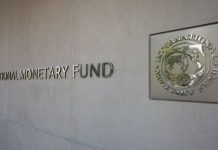Africa-Press – South-Africa. Jonathan Goldberg
COVID-19 caught all by surprise including the harsh lockdown in March 2020. The goalposts keep shifting. First there were five anticipated lockdown levels, each with specific legal compliance requirements. After this, there were “adjusted” levels with even more permutations.
As part of this process, employers had to request employees to voluntarily self-disclose their comorbidities and now also need to determine employees’ vaccination status. More recently, organisations have in a number of cases imposed a ban on third parties accessing their premises, unless the suppliers or visitors have been fully vaccinated.
Then we have the matter of case law. Already a number of dismissals related to Covid-19 have taken place and have been adjudicated by the Commission for Conciliation, Mediation and Arbitration (CCMA). There will be many more to follow.
Now it is also evident that irrespective of being vaccinated, there is still the probability of being infected again and even facing death, albeit on a significantly reduced level.
Businesses forced to close – do we have to pay employees?
The closure of many businesses by the Disaster Management Act (DMA) brought the first big question that needed to be answered by employers and employees. It was whether the employer was obliged to pay the employees in terms of the act.
We got to the bottom of that answer quite quickly and we were of the opinion that it was no work no pay. Many people floundered regarding this problem. It was one of the first big issues that came out of the DMA.
There were a range of employees who could work remotely and were working regardless of whether their companies were closed because of the nature of their jobs and businesses. Those employees were entitled to be paid and we have seen some cases come through the CCMA regarding the payment of people who continued to work throughout the lockdown although their businesses were prohibited from physically working at their premises.
The next issue: restructuring and retrenchment
We advised clients that if they felt that their business was going to suffer dramatically over the following six to12 months one should take the bold decision of engaging in restructuring discussions. Many employers froze and were paralysed regarding these decisions.
However, you cannot have employees getting paid for not doing any work. Luckily, the social partners at Nedlac managed to create the UIF Ters relief scheme to which workers – who were affected by restructuring decisions – were able to apply. To date, the scheme as paid out R63 billion.
Although there are still numerous problems regarding administration at the Unemployment Insurance Fund, the fact that R63bn was paid out to workers who desperately needed it, is a huge success factor and a big credit to the Nedlac process which was quick and efficient.
Positive Covid-19 results at workplace
In our experience, most employers have had a Covid-19 positivity rate of around 20% which means that if they have a staff complement of 1 000 staff, at least 2 000 sick leave days have been used, excluding the “close contacts” who also had to isolate for 10 days each.
Then there is the additional cost of long Covid, anxiety, stress and uncertainty. The fact that some employee benefit providers have stated that premiums will be escalated for unvaccinated staff and members also raises inflationary concerns. Then, there is the difficulty of employers having to fairly process applications for exemption from mandatory vaccination policies as well as deal with workplace polarisation.
The challenges around Covid-19 vaccinations
As vaccines now become available in the world and access to vaccines, specifically in South Africa, being more readily available the real problem has come down to the issue around vaccinations.
We know at this stage that between 26% and 27% of the population have been vaccinated by either the Johnson & Johnson single or double Pfizer jab. The aim was to get to 67% of the population vaccinated by December. We have fallen very short of that. We see people doing projections on the fourth wave and believe this wave will not be as harsh as the third wave. As this virus mutates, we will see the quicker spread and people getting affected a second time.
The the Occupational Health and Safety direction – as part of the DMA – states that employers can have compulsory vaccination sites. This requires a proper risk assessment and this needs to be done in terms of the obligation of the OHS Act. This risk assessment will determine whether you can keep people apart from each other and social distance in compliance with the direction. If not, then employers need to think about considering the compulsory vaccination site.
In a nutshell, there are certain proven approaches that all employers should be following in order to sustainably manage Covid-19 in a legally compliant and human-centric manner.
The first is to have current, comprehensive and accurate data fields of all pertinent data subjects including staff and third parties who access the workplace – a single source of truth with all data fields required to manage Covid-19. An example of the first such technology platform is DIVOCK which allows for the end-to-end management of Covid19.
Next, the data has to allow for two risks to be evaluated according to the OHS Act and related legislation, namely the individual risk of the staff member based on comorbidity and vaccination status along with the workplace risk assessment.
Taken together, these two risks allow for consultation with unions and OHS representatives as required by law before making a decision in favour of or against mandatory vaccinations or even a blended approach. Then finally, the need to allow staff members who object to vaccinations to apply for exemption on one of the three legally recognised grounds. These cases then need to be managed to their conclusion and include attempting to reasonably accommodate.
Jonathan Goldberg is the joint CEO of Global Business Solutions and winner of the SABPP award for Best Innovation or Contribution by an HR Practitioner in dealing with Covid-19 At Work.
BUSINESS REPORT ONLINE
For More News And Analysis About South-Africa Follow Africa-Press






